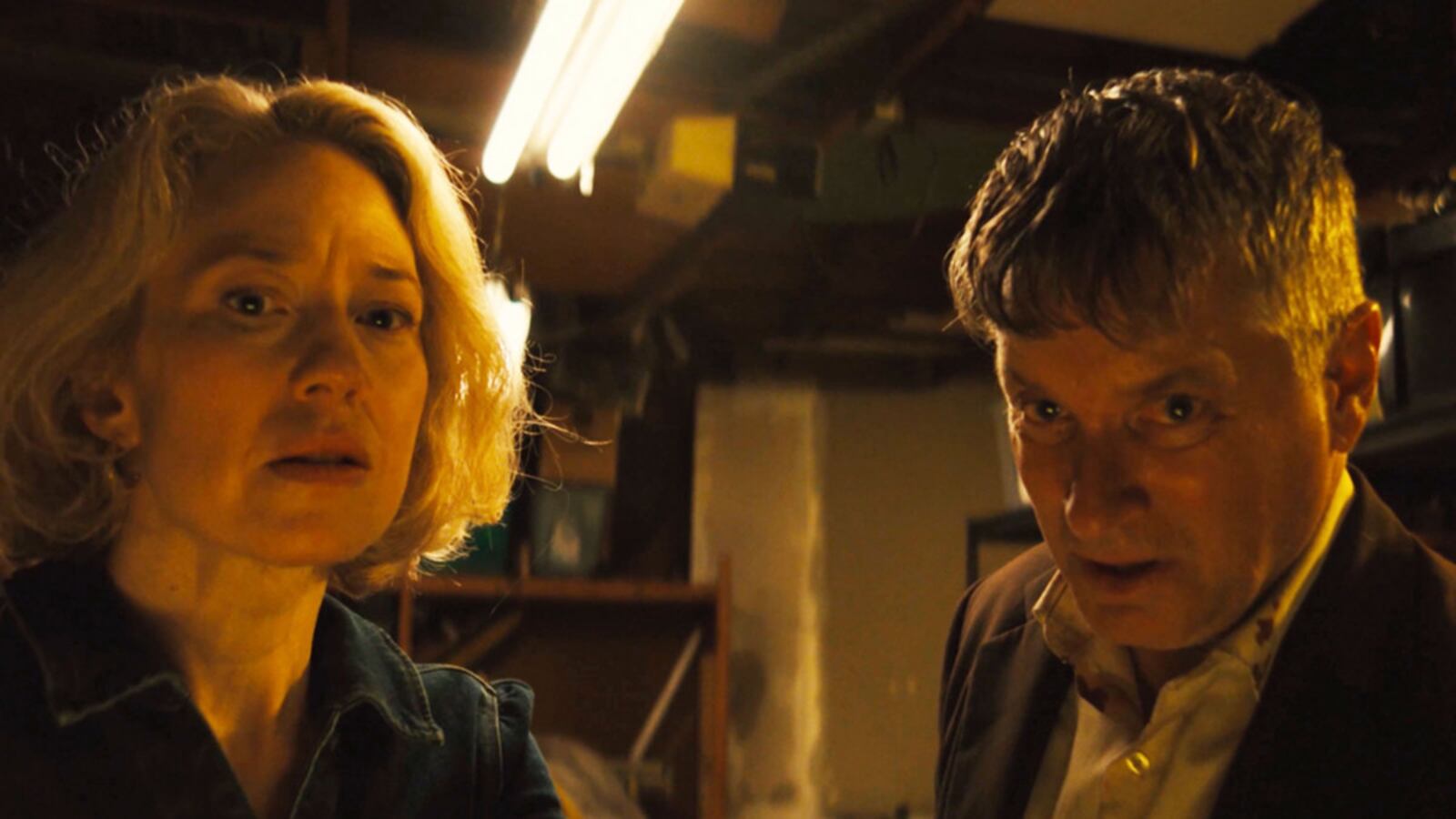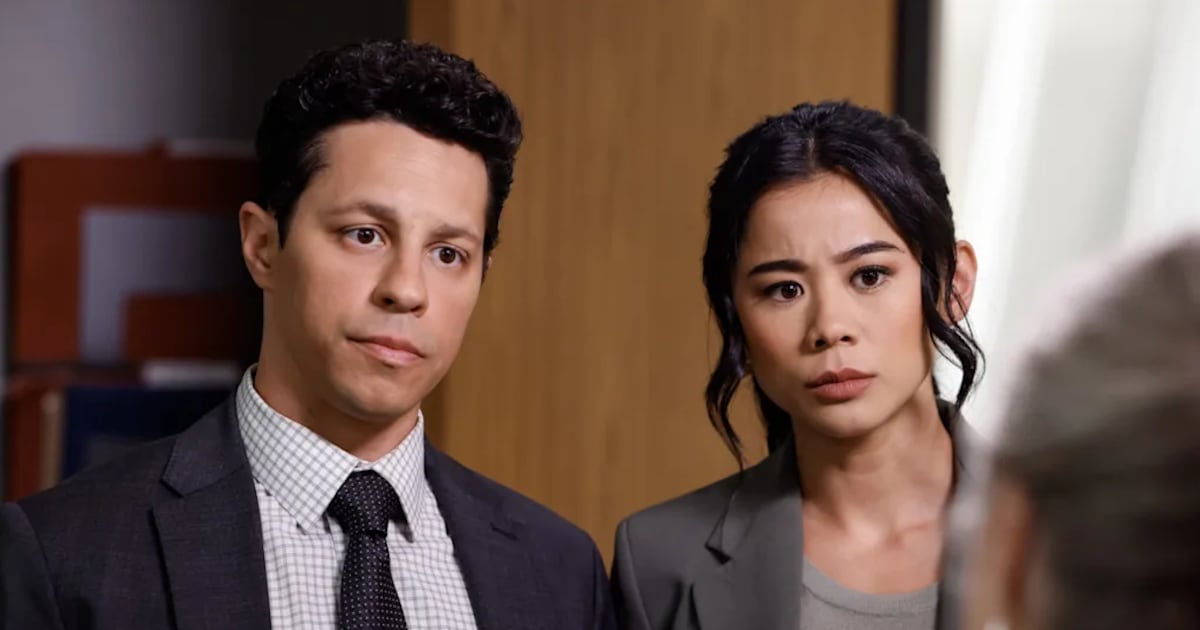After the sun-drenched disappointment of Colin Farrell’s Sugar, it’s nice to see a Los Angeles-set neo-noir that manages not to squander its simple premise. When a genre offering can buck convention, all the better; but there’s pleasure in giving in to the formulaic familiarity of a little low-stakes crime carried out by shady characters. In veteran television director Jeffrey Reiner’s film Lake George, which premiered at the 2024 Tribeca Film Festival, Reiner uses the audience’s intimacy with L.A. noir to his advantage. The writer-director beefs up his characters beyond the archetypical thugs and cons to create a film that rests firmly on its actors’ backs—occasionally to its detriment.
Reiner is quite good at framing his antihero, Don (Shea Whigham), in a bath of natural California light, and letting Whigham take it from there. Don’s just out of a decade-long stint in prison, and when his ex-wife doesn’t answer the phone, his only choice is to call up his old buddy Armen (Glenn Fleshler) and hope that he’ll be willing to make good on some debts to Don. In prickly situations like these, nothing’s ever as easy as it should be. Armen agrees to pay his debts to Don if Don does him a favor first by killing his girlfriend, Phyllis (Carrie Coon). It’s less of a suggestion than a demand, and Don is quickly pulled back into Armen’s world of low-level crime schemes—the kind that set you up in a Glendale McMansion instead of a sweet Beverly Hills pad.
What follows is a conventional yet perfectly fun neo-noir that doubles as a road trip movie across southern California after Don kidnaps Phyllis and gets more than he bargained for. Reiner gets to the meat of the story without any fuss, and though some might find his style of writing predictable, it benefits Lake George’s modest premise. He finds a reliable star in Whigham, whose pliant character acting once again fits the mold perfectly. But it’s Coon who runs away with the film. As Phyllis, she’s caustic and just unpredictable enough to keep Reiner’s material consistently engaging, elevating Lake George from a substandard neo-noir to a darkly funny and fresh take on the genre.
A certain blonde pop star might say that Don is fresh out the slammer, but unlike the character in Taylor Swift’s recent song, Don has no one to run home to. Armen figures that out the moment Don walks through the door, and uses it to his advantage. Don’s only option is to do Armen’s bidding in the hopes of getting his hand on some cash, but from the start, Phyllis proves to be tricky. Not only is she a fast runner, but she’ll say just about anything to get out of a bind—something Armen warns Don about while setting him up with a gun, knife, zip ties, and a burner phone. But Phyllis’ grace under pressure ultimately doesn’t matter, because Don’s conscience won’t let him pull the trigger once he gets Phyllis alone.
Strapped for cash and unable to kill, Don hatches a plan. He’ll drive Phyllis up the coast to Washington, where she’ll start anew. If she promises never to return to Los Angeles, all will be well; Phyllis can stay alive, and Don will get his money. But seeing a mutual enemy, Phyllis convinces Don to swindle Armen out of a boatload of cash stashed around different safe houses in California. It’s a risky offer, but one that Don can’t refuse without a nickel to his name.
Lake George is Reiner’s first feature film since 1996, and it’s apparent that he’s a bit rusty with the format. His later career has been built on directing smaller-form television series like Hulu’s excellent High Fidelity and the much less excellent Dirty John. While Lake George is bookended by some questionable pacing, there is something to be said for its near-faultless middle third. It’s in that stretch where the film comes alive, brimming with darkly funny jokes, hapless violence, and Whigham and Coon’s undeniable chemistry. It’s almost as if Reiner crafted a fantastic, hour-long pilot and, later, wrote the material around it to turn his idea into a full film.
That discordancy doesn’t throw the movie off its tracks entirely. It just makes Lake George feel overly long and in need of a careful editor’s eye. But Reiner’s sunlit digital cinematography is beautifully constructed, recalling the strengths found in a string of Paul Schrader’s recent noirs. Both directors work with an innate knowledge of how to adapt the flatness of digital photography to their favor, and the bleakness of Don’s position is reflected well by Reiner’s lens.
But whether or not you’re familiar with the conventions of the neo-noir won’t matter when you’re charmed by Coon’s effervescent performance. Phyllis is a ruthless thinker, whose worst nightmare is having to rot in the confines of Washington’s state lines. She’s an instantly memorable character from the moment Phyllis tells Don that she met Armen in rehab, saying, “I was a coke fiend, nose like a Dyson,” with the most earnest impulsiveness that she can conjure.
Coon always makes Reiner’s occasionally stilted script feel natural and takes no time warming up to Whigham, bringing some cheeriness out of Don’s rigid composure. Yet for all that geniality, Phyllis remains wiry and wry, with Coon suggesting an underlying agenda with each of her character’s tricks. When Phyllis tells Don that “everyone’s playable,” it’s very easy to see where the film is headed, but Coon and Whigham have a great time getting there. Lake George might not be an all-out vacation for Phyllis, Don, or any audience members craving a highly original noir, but this is one case where the quality of the journey surpasses the destination.






